When you’re always busy taking care of others, dealing with issues that seem to arise out of the blue, and just generally feeling like you’re not in control of your life, making time for yourself can feel like a luxury.
You probably feel like you never have time for yourself, and that’s completely understandable. But not focusing on your personal growth can lead to burnout and resentment.
A self-care journal is a great way to start taking some time for yourself each day.
This tool will help you reflect on your day, identify areas for improvement, and set goals for the future.
In this article, you’ll learn:
- What Is a Self-Care Journal?
- The Benefits of Journaling for Self-Care
- Common Challenges With Journaling
- 3 Tips for Successful Self-Care Journaling
- 3 Simple Steps To Get Started With Your Self-Care Journal
- 7 Self-Care Journaling Prompts
- Practice Self-Care
- Questions You May Have
Let’s get started
What Is a Self-Care Journal?
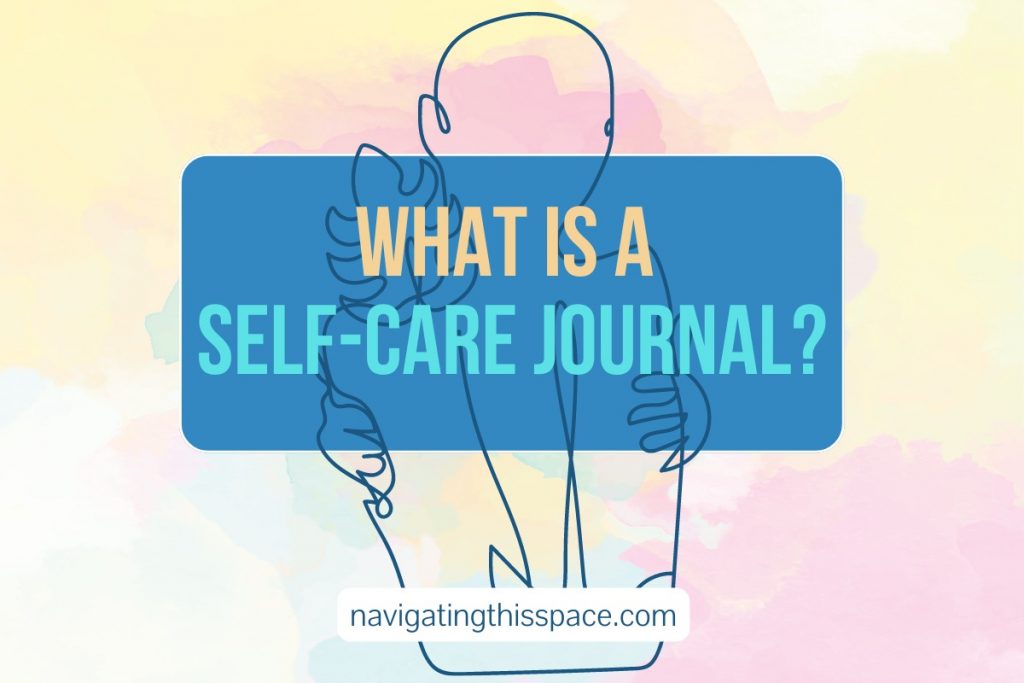
A self-care journal is simply a notebook or diary that you use to reflect on your day and record your lingering thoughts and also the aspirations you dream about.
You can use your journal to vent about anything that’s bothering you or track your progress as you work toward any goal.
Some people like to use their journals for creative writing, others for doodling, and some for both!
I like to mix it all up. Even though I mostly write what’s on my mind, there are times when I just feel like drawing is a better way to express what I’m feeling.
The most important thing is that you use your journal in a way that feels comfortable and helpful for you.
It’s your expression outlet, and you have the freedom to do whatever you want with it.
The Benefits of Journaling for Self-Care
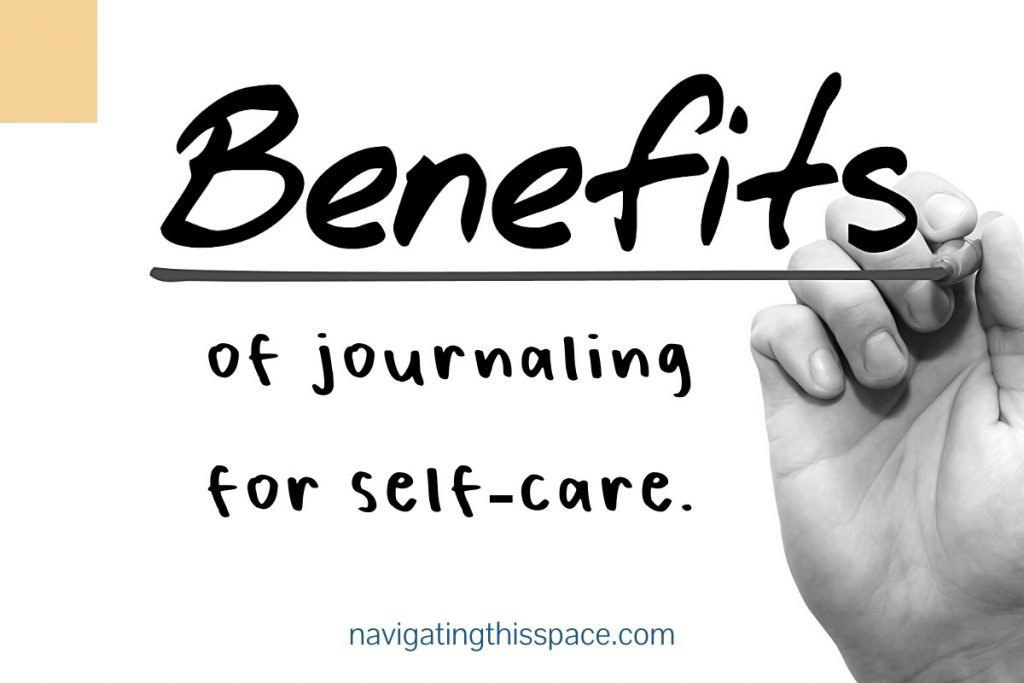
The benefits of keeping a self-care journal are many, but these are some of the most impactful:
1. Understand Your Emotions
When you take the time to sit down and write out your thoughts, you begin to see patterns and themes emerge that you may not have been aware of before. This can help you to identify unhealthy negative thought patterns and work on changing them.
2. Reduce Stress and Anxiety
Venting about the things that are stressing you out can help you to feel more in control and less overwhelmed. Once you’ve got everything out of your head and onto paper (or screen), you can start to develop a detailed plan on how to solve these issues.
3. Improve Cognitive Function
It has been said that the pen is mightier than the sword. In many ways, this is true. By taking the time to put your thoughts and feelings down on paper, you are taking the time to improve your cognitive function.
Just like a whetstone sharpens a sword, the pen sharpens your mind, which allows you to think more clearly, make better decisions, and solve problems more effectively and thoroughly.
4. Improve Immune System
It’s been scientifically proven that journaling can help to improve your mental and physical health. One study found that people who wrote about emotionally difficult experiences for 20 minutes, three days in a row, showed significant health improvements over those who didn’t journal.
This only proves that when working through your difficult moments, it can lead to more robust and more balanced state of mind and body.
To learn more about the benefits of journaling, read this article: The Long-Term and Short-Term Benefits of Journaling.
Common Challenges With Journaling

Unsure Where To Start
The most common challenge people have with self-care journaling is that they don’t know how to get started.
It may seem a bit daunting at first, but once you sit down and start writing, the words will begin to flow.
It’s simpler than your brain is making it out to be. You don’t need to fill an entire book or even a page whenever you sit down to write.
Sometimes, I find writing more than three sentences hard because my mind just goes blank, and that’s perfectly okay!
The goal is to get something written down, no matter how small it may be.
Perfectionism
Another challenge people face is that they feel like their journaling has to be “perfect.”
This feeling is, unfortunately, the ugly monster called perfectionism. We all suffer from its crippling effects at some point in our lives.
The key to overcoming its effects is acknowledging that nothing is ever perfect, and the more you spend time trying to make your journal perfect, the less effective it will be.
The goal is to get deep, really deep with yourself. So deep that you may begin to feel a bit uncomfortable. That’s the space you want to write from.
When you reach that place of vulnerability, you know you’re making significant progress in your personal growth.
Remember that no one will judge you for your journaling. Because ultimately, it’s for your eyes only.
So don’t be afraid to make mistakes or write something that doesn’t make sense. It’s all part of the process to unlock your inner thoughts, feelings, and desires.
Cramming Too Much
A final challenge people face is trying to journal everything that’s going on in their lives instead of focusing on one specific thing.
This approach quickly leads to feeling overwhelmed and burnout. It’s important to be mindful of where your thoughts are leading you. If you choose to follow all of them you’ll quickly learn that your brain doesn’t work that way.
You need to focus on one thing at a time. It’s much more effective and you’ll get better results.
3 Tips for Successful Self-Care Journaling
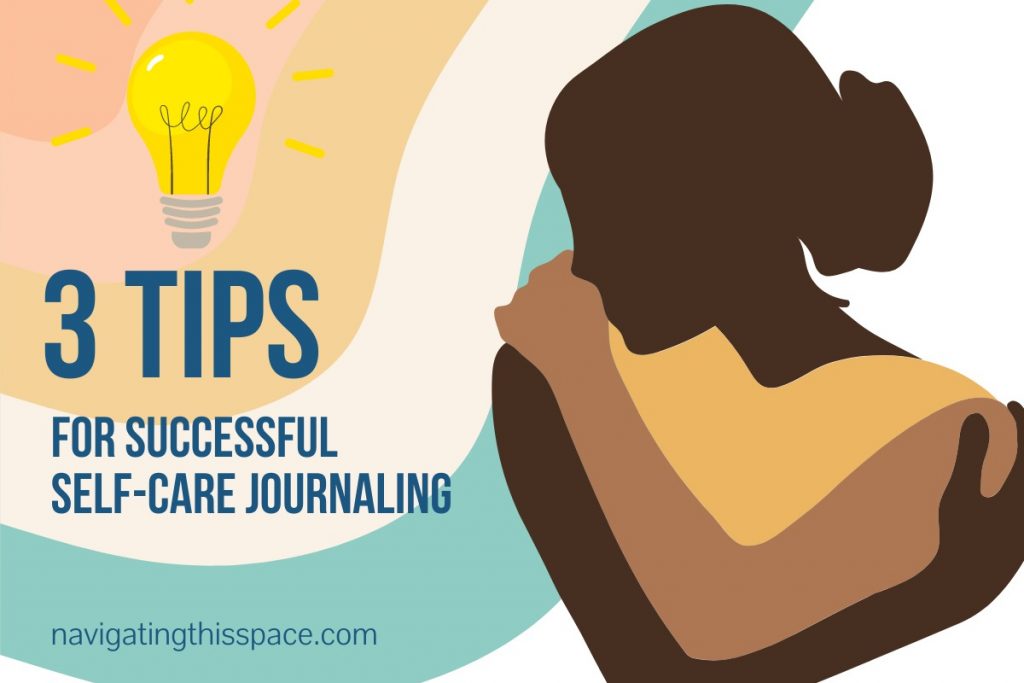
1. Schedule Time for It
The best way to make sure you actually sit down and journal is to schedule time for it.
2. Find a Quiet Place
Interruptions can break the mood and flow of your journaling, so it’s important to find a place where you won’t be disturbed. This will help you to feel more comfortable and relaxed as you write, which will help you to dive deeper into your mind.
3. Keep It Simple
Start with just a few sentences. Forget grammar, spelling, and all the other nuances that are keeping you from journaling now. If you’re uncomfortable with writing your thoughts and leaving them lying around your house, invest in a waterproof and fireproof safe to store your journal.
If you don’t make an effort to dig deeper, you’ll never know what treasures are hidden within you.
3 Simple Steps To Get Started With Your Self-Care Journal
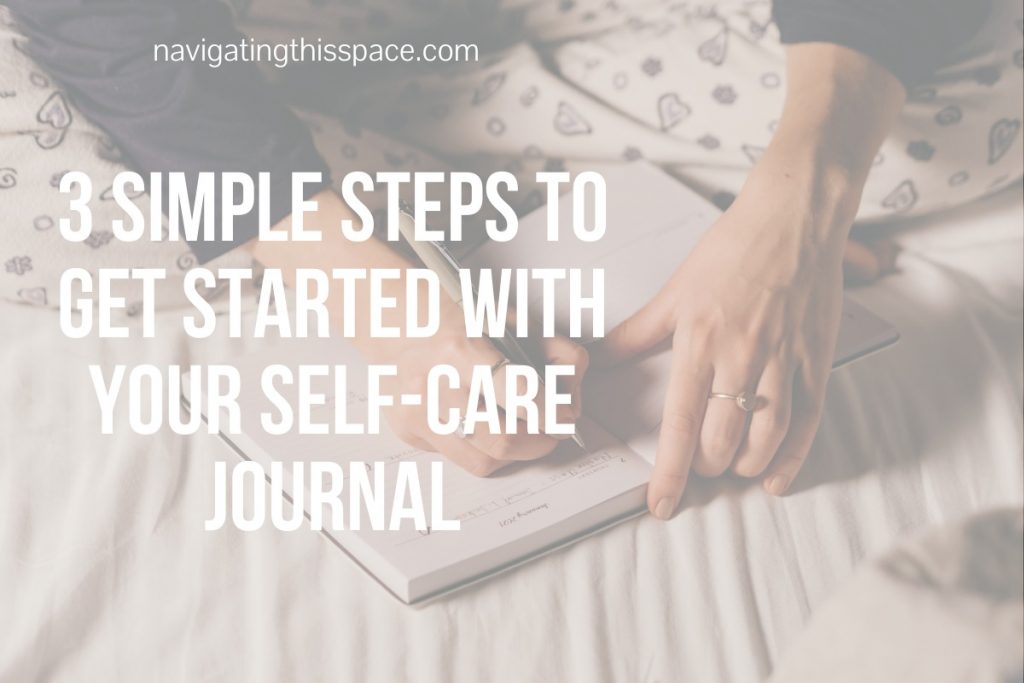
Step 1. Get a notebook and a pen that you feel comfortable writing with.
Step 2. Set aside some time each day or every other day to write. It doesn’t have to be a lot; 10–15 minutes will do.
Step 3. Write about whatever is on your mind. Don’t worry about making sense or being perfect, just let the words flow from your fingers to the paper.
7 Self-Care Journaling Prompts

If you’re not sure where to begin, here are a few prompts to get you started.
- How do I make time to take care of myself?
- What are some things I can do to relax and unwind?
- What are the top 5 things I’m grateful for in my life?
- What are three positive aspects of myself that I want to improve?
- What are some negative aspects of myself that I want to work on?
- What has been bothering me so much lately that thinking about it shifts my mood into sadness? What can I do about it?
- In what ways do I compare myself to others, and how does that make me feel?
Practice Self-Care
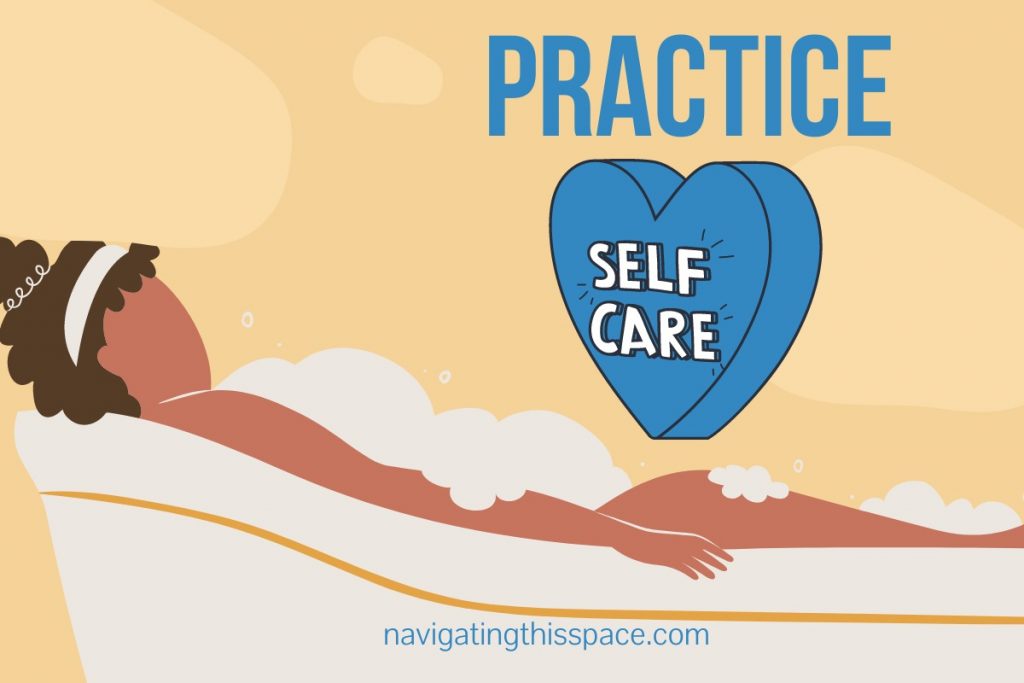
Self-care journaling is an important tool for personal growth. By focusing on yourself, you can learn to overcome negative thought patterns, work through challenges and cultivate a more positive outlook on life.
Start by setting aside some time each day or every other day to write.
You deserve to understand what you’re capable of and how to better care for yourself. So get started today and see where your thoughts take you!
Leave a comment below and tell us about your experience with self-care journaling.
Did it help you focus on yourself and grow as a person? What challenges did you face, and how did you overcome them? We’d love to hear from you!
Questions You May Have
Is journaling good for self-care?
Yes, journaling can be a great tool for self-care. It can help you to focus on yourself, work through challenges and cultivate a more positive outlook on life.
Do self-care journals work?
Many people find it helpful to track their moods and activities in a journal. This can provide valuable insights into behavior patterns and help to identify triggers for negative emotions. So yes, self-care journals can work if you utilize them regularly instead of letting them collect dust on a shelf.
How does journaling help with self-expression?
Writing about your thoughts and feelings can help you express yourself safely and healthily without the fear of being judged. Journaling allows you to simply be you.
Is journaling good for self-improvement?
Journaling is an excellent tool for self-improvement as it allows you to focus on improving yourself. By understanding your triggers and thought patterns, you can learn how to better deal with stressors and cultivate a more positive outlook on life.
Pin It!
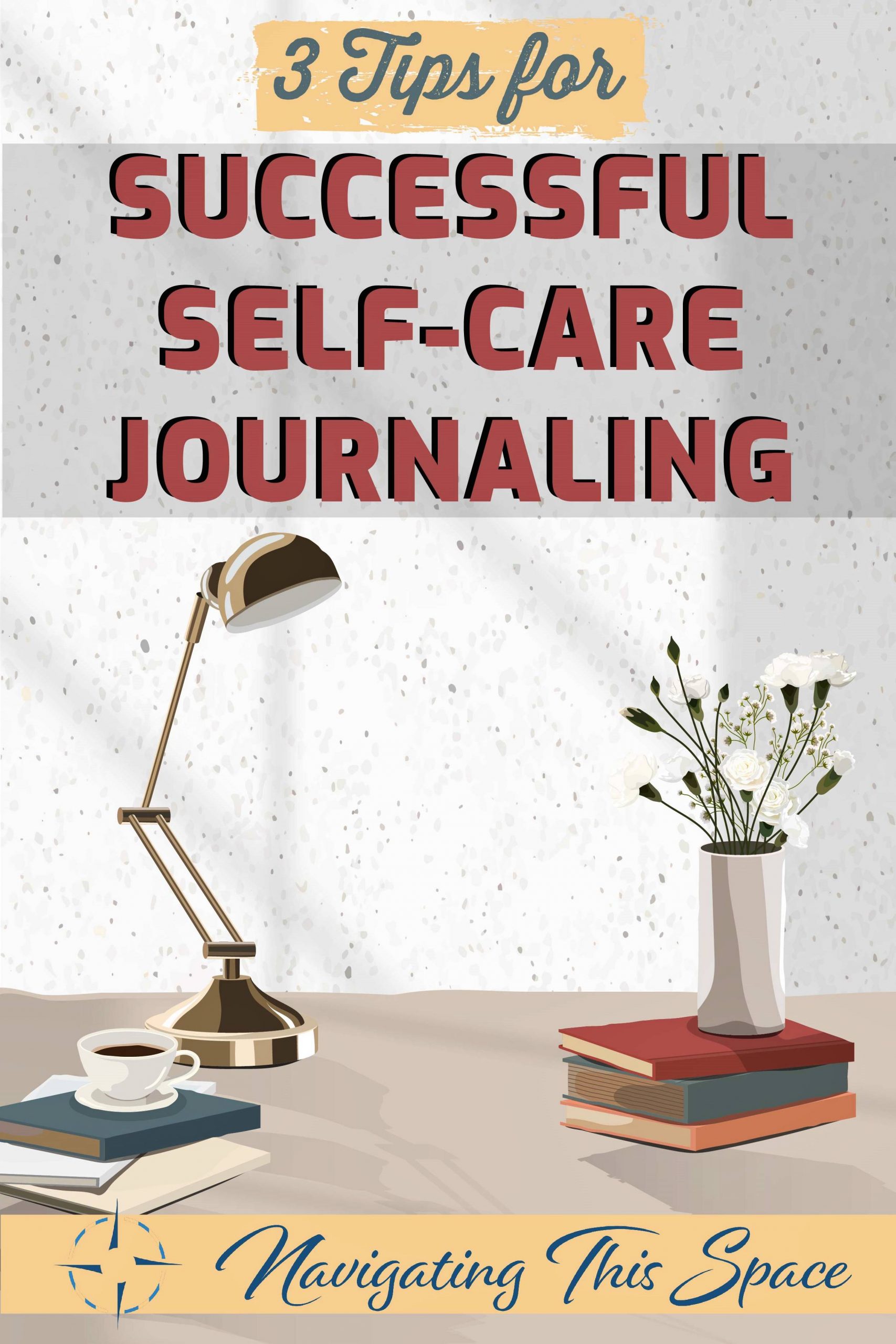
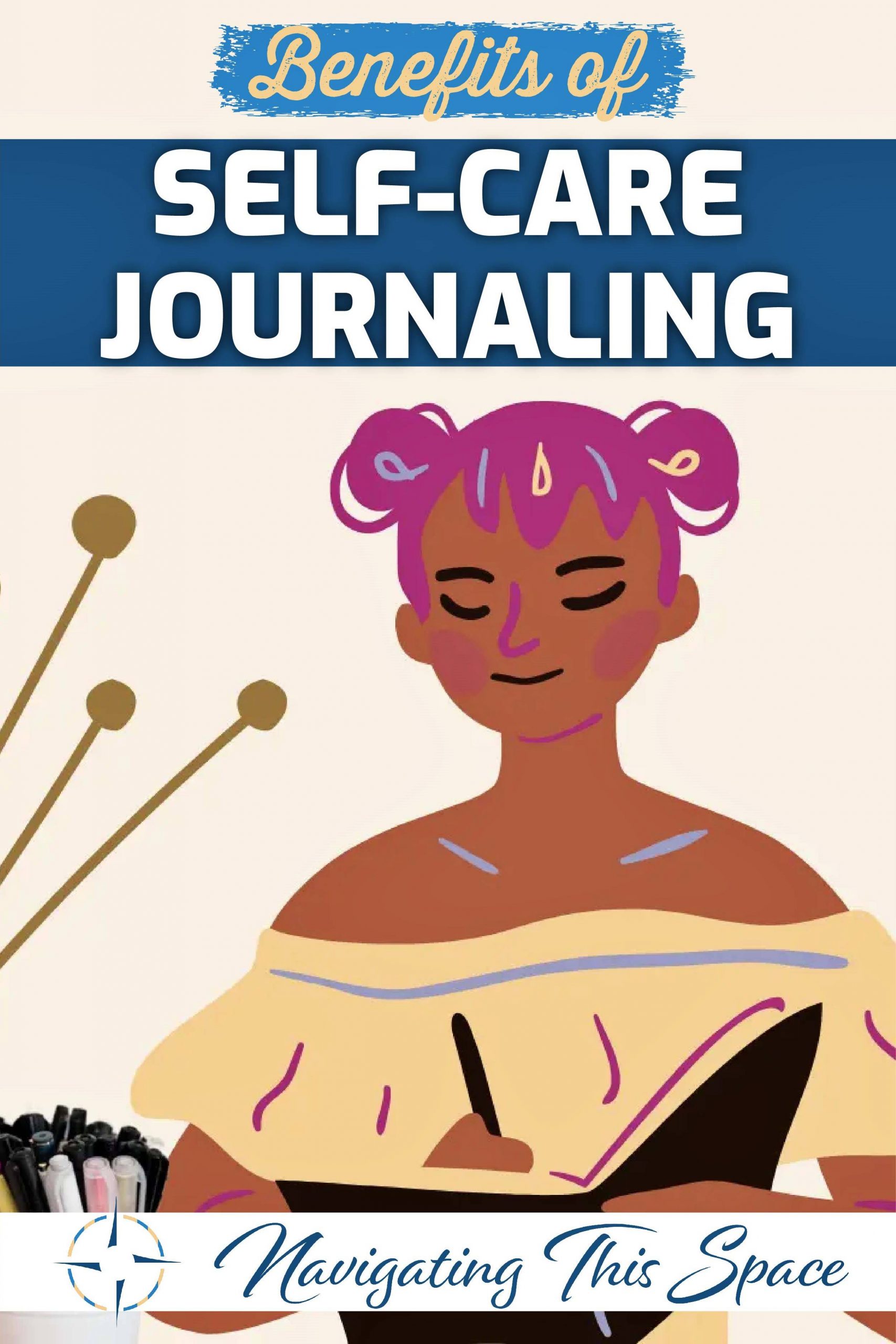




I don’t really have a journal but sometimes I note in my calendar what I ate and when I don’t feel right
That’s a form of journaling Mina, you’re writing things down, keep going.
I have always loved to journal. I find that when I am stuck and just not sure what to say (normally because I have way too many things going on in my head), I grab a journal prompt and just write what comes out from the prompt.
That’s a great way to organize your thoughts Samatha, I can relate because my thoughts run at a million miles per minute. Thanks for reading!
Journaling made and still makes such a huge difference in my life! Could not agree more, so good to get clarity about your emotions and also dreams and desires! Thanks so much for sharing this!!
Hey Nicolle, you’re very welcome, thanks for your continued support.
I have always wanted to start journaling and have been encouraged to do so because i have anxiety but have not been sure where to start. thank you for this post
I’m happy I’m able to help you Tianna, journaling will be a great addition to your life so go for it.
Great post! I love the journal prompts and will be doing some of these this weekend. Such a great idea to have a self care journal. Thanks for sharing!
You’re welcome Sanya, and I hope the journal prompts helps you to dive a lot deeper. Thanks for reading and commenting!
Love this! I am a massive believer in journaling and love that you’ve applied it to self care. Also love the ‘keep it simple’ approach. Thanks for sharing 😊
When things are simple, we do them. Thanks for reading Stephanie.
Love it! Thanks for sharing =)
Thank you for reading and commenting Anike!
I definitely found that journaling helped me to get my thoughts and goals in order and that to me was a major part of self care for me. It elevated most of my anxiety.
Thanks for sharing your experience Sasha, journaling really is the best!